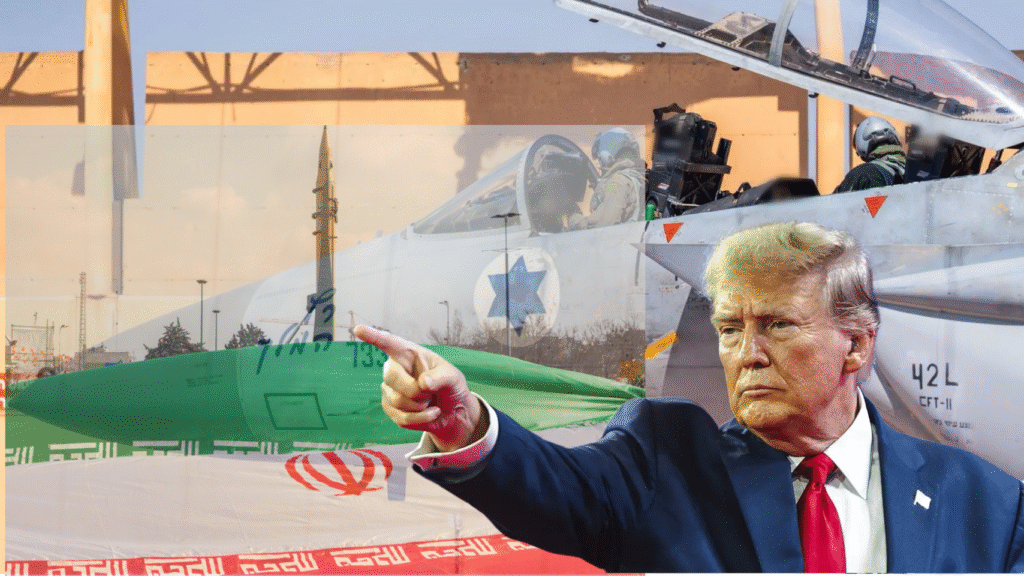
Sitting at my kitchen table, coffee in hand, I scrolled through the news this morning, as I often do. But the headlines today stopped me cold. Israel and Iran are at war. The sheer weight of those words is staggering. And then there’s the added dimension of U.S. involvement, which immediately raises the stakes. For years, we’ve seen tensions between these two nations ebb and flow, but now, the conflict has burst into full view.
This moment is surreal but not unexpected, and what’s happening is not just their story. It’s ours too. Whether it’s through economic consequences, political ramifications, or the deeply human cost, this war has far-reaching implications that touch us all.
What’s Unfolding Now?
To understand the gravity of what’s happening, it’s important to clearly lay out the events as they’ve occurred:
- Israel carried out airstrikes on multiple Iranian nuclear facilities, including Fordow and Natanz, two of Iran’s most pivotal uranium enrichment sites.
- The United States joined the operation, providing crucial intelligence and military support, underscoring the international implications of the conflict.
- Iran responded aggressively within hours, launching ballistic missiles and drones that targeted Israeli air bases, parts of Tel Aviv, and a hospital in the city of Be’er Sheva.
- Civilian casualties are rising, with both Israeli and Iranian families bearing the brunt of this escalation.
This is not just a battle of political ideologies. It’s a terrifying escalation that impacts millions of lives. What makes it even scarier is the speed at which the situation is unfolding.
The Long Road to Conflict
The Israel-Iran relationship has been a tense one for decades. To fully grasp what brought us to this moment, we need to understand the complex historical context.
At the heart of this animosity lies Iran’s ambition to become a nuclear power, something Israel sees as an existential threat. Iran has consistently stated its nuclear program is for civilian purposes, but Israel and its allies have long suspected otherwise. This isn’t just about weapons; it’s about power and influence in the region.
The two nations have also faced off indirectly for years, supporting opposing sides in proxy wars across the Middle East. Iran has funded groups like Hezbollah in Lebanon and Hamas in Gaza, organizations that wage war against Israel. Meanwhile, Israel has carried out covert operations, cyberattacks, and limited airstrikes targeting Iranian assets.
These actions created a precarious balancing act. But with recent developments, including Iran’s accelerated nuclear enrichment and Israel’s increasingly bold military responses, the tipping point has been reached. This war is not just the failure of diplomacy; it’s the culmination of decades of mistrust, alliances, and unresolved tensions.

Seeing the Conflict Through Personal Stories
I don’t live in the Middle East, but this crisis feels strangely close. Maybe it’s because of the people I know who are living through it. Or perhaps it’s the vivid, raw humanity behind the headlines that keep pulling at me.
An old college friend of mine, Sarah, moved to Tel Aviv for work a few years ago. Late last night, I received a message from her. She wrote:
“We’re safe for now, but the shelters are packed. Everyone’s on edge. My youngest doesn’t understand why we’re sleeping underground.”
It brought me to tears. Across the world, in Tehran, another story unfolds. A journalist I follow on social media posted a video of her father frantically gathering supplies. Her caption read:
“I begged him to stay, but he’s set on driving us out of the city. It’s chaos here. Lines for gas, empty shelves. No one knows what’s next.”
These are the stories most of us miss when we glance at the news. They remind me that this conflict isn’t about grand strategy or political power struggles. It’s about families, kids with homework, parents juggling jobs and responsibilities, all caught in something massive and unyielding.
📘 Want to Start Earning with Affiliate Marketing?
Download my eBook and discover step-by-step strategies to build passive income through affiliate marketing — perfect for beginners and aspiring entrepreneurs!
👉 Get the eBook on AmazonThe Global Implications
War in a distant part of the world is never just “their problem.” Like ripples in a pond, the effects of this conflict will be felt globally, and in ways that might surprise you. Here are the key areas that will be impacted:
1. Rising Oil Prices Hit Everyone
Oil prices are the canary in the coal mine for global stability, and this conflict has sent them soaring. Brent crude surged beyond $110 per barrel, and analysts warn it could reach $130 or more if Iran blocks the Strait of Hormuz, a chokepoint through which a fifth of global oil flows.
Here’s what this means for everyday life:
- Gas prices will climb. Regular commutes and cross-country road trips will become noticeably more expensive.
- Heating costs may spike. For those in colder climates, the timing couldn’t be worse as winter approaches.
- Airplane tickets will rise. Business travelers and vacationers alike are likely to feel the pinch.
- Everyday goods will cost more. With increased transportation expenses, everything from food deliveries to e-commerce shipping will cost more.
If this escalates further, the strain on households and businesses worldwide will be palpable.
2. Markets Face New Turmoil
Stock markets thrive on certainty, and this war has upended any semblance of stability. Within hours, global markets reacted sharply:
- Asian and European indexes fell dramatically. Investors are abandoning riskier assets, such as stocks, in favor of gold and U.S. Treasury bonds.
- Oil and energy companies experienced gains, but industries like airlines suffered losses due to projected cost increases.
- Some emerging-market currencies are also weakening against the dollar as investors seek stability.
More worryingly, if oil prices hit $150+ per barrel, this turbulence could trigger a new wave of inflation just as major economies were starting to stabilize post-pandemic.

3. Shipping and Supply Chains Are Vulnerable
The Middle East plays a vital role in global trade routes. This conflict jeopardizes transportation arteries around the Persian Gulf and the Red Sea. Companies may need to reroute shipping at a higher cost or face significant delays.
Consider the goods affected:
- Electronics, textiles, and car parts traveling between Asia and Europe could face disruptions.
- Agricultural imports and exports passing through the region might also slow down, impacting food affordability.
The pandemic revealed just how fragile our supply chains were. This conflict could stretch them to breaking points once again.
4. Cybersecurity Risks Are Higher
Modern warfare isn’t just fought with missiles anymore. Cyberattacks are becoming a weapon of choice, and experts fear that Iran and Israel could escalate their digital battles.
- Banks and power grids could be targeted, affecting millions.
- Ransomware attacks on companies across the globe could uptick, further destabilizing economies.
- With many organizations yet to fully fortify their defenses, these risks are growing daily.

Can We Hope for De-escalation?
Right now, hope is thin but not nonexistent. Diplomatic channels remain open, although the rhetoric from both sides makes peace seem remote.
- Israel claims it must neutralize Iran’s nuclear capabilities to ensure its survival.
- Iran, in turn, promises to keep retaliating for what it views as acts of aggression.
The UN and leaders from Europe and Asia have called for restraint. Whether back-channel talks or mediation will work remains to be seen. Past conflicts show that even bitter rivals can pause when faced with enough pressure. Whether we’re on the brink of prolonged fighting or a breakthrough in diplomacy is still unclear.
Why You Should Care
It’s easy to see these events as “somebody else’s problem.” But ignoring complexity doesn’t shield us from its consequences. This war affects the price of your groceries, the safety of your investments, and the health of people who could be your neighbors if you lived a little farther east.
More importantly, it reminds us that we are all connected. Behind these crises are human beings, no different from you or me. Their stories show us why compassion and understanding matter now more than ever.
What Happens Next?
The coming days will be critical. Potential scenarios include:
- Further military escalation, with more airstrikes and retaliations.
- Cyberattacks disrupting life far outside the battlefield.
- Broader involvement, with nations like Russia or China stepping in to defend their interests in the region.
On the economic front, everyone will be closely watching oil prices, shipping routes, and international political reactions. The stakes are high, and the path forward remains uncertain.

Staying Grounded Amid Chaos
When the news feels overwhelming, here’s how to stay informed without burning out:
- Follow trusted sources. Reliable outlets like Reuters, AP, and BBC will offer measured reporting.
- Take news breaks. It’s okay to step away for a bit. Staying informed doesn’t mean being glued to every update.
- Remember the human story. It’s about people, not just policies or numbers.
Final Thoughts
If you’ve read this far, I hope it means you care. This story isn’t just about geopolitics or oil markets. It’s about how connected we are, how the struggles of people thousands of miles away can ripple into our own lives.
Stay informed. Stay empathetic. And, above all, hold onto hope for peace. Even when it seems impossible, it’s what binds us together as people.
